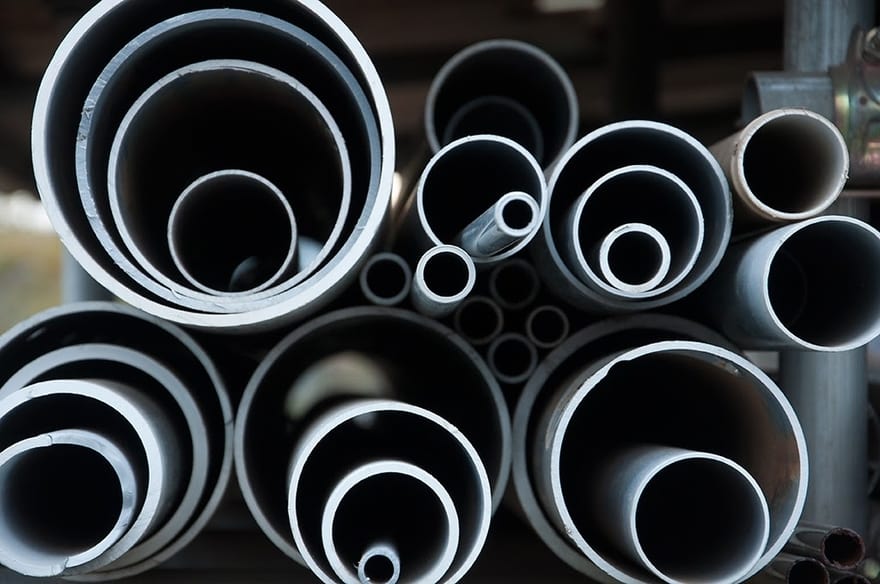

Pipes are everywhere and generally taken for granted. There are massive pipes bringing water to your home, smaller ones carrying it around your home, and larger ones taking the wastewater and products to the sewers and the treatment plants.
The various different pipes within a plumbing system are made of different materials. The pipes that bring the water supply to your home are usually made of plastic, but concrete or metal is also an option.
While all pipes can be subject to corrosion metal ones are generally considered to be the most vulnerable. Metal pipes are made from steel, ductile iron, aluminum, and of course, Copper. The fact that they can corrode is a great reason to have an annual inspection by a qualified Sydney plumber.
How Pipes Corrode
Corrosion of metal pipes occurs when an electrochemical cell is present. This is best described as like a battery with an electrical current passing from positive anodes to negative cathodes. Combine this with the chemicals in the soil and on the outskirts of the pipes and the outer layer of the pipe will start to be eaten away. This is corrosion and you’ll want to stop it from spreading or getting worse.
Serious cases of corrosion mean that your pipes will develop leaks, potentially leading to further corrosion issues.
Of course, pipes in the home are much easier to see and this gives you an advance warning of a corrosion problem. In most cases, a corrosion problem at home is linked to a water leak which causes water to sit on the pipes, especially around joints. Because the water and metal are already in the open air, the pipe has all the ingredients it needs to start corroding. You’ll recognize it as rust.
The longer it is left damp the more likely it is to rust and, if left long enough, develop a hole that will start a leak. That’s an issue you don’t want to be dealing with. Other causes of corrosion are:
Low PH
If your water has a low pH rating then it is acidic. As with any acid, that means your water is capable of dissolving certain items. The more acidic it is the faster it will eat the inside of your pipes and cause you issues. It’s worth noting that this works from the inside of the pipes, making it difficult to spot until it is too late.
Minerals in water
Hard water tends to have a higher mineral content than soft water. This is often a result of the route it has taken to your home. The more rocks the water passes through the greater the number of minerals.
These minerals build up inside your pipes and start galvanic corrosion. This is where the electrons move from high electron metals to those with a lower number of electrons. The end result is the pipes can become blocked and the minerals, along with trace water, will start to eat through the pipe, causing corrosion and other issues.
Oxygen level
Oxygen is an essential part of the rusting process. While it is present in the air around us the higher the oxygen level the faster a piece of metal can rust. In short, an oxygen rich environment will speed up pipe corrosion.
When a high level of oxygen is in the water this increases the buildup of rust inside the pipes. Over time it will block the pipes and create holes. The only option will be to replace them.
Electricity
It may surprise you to know that electricity passing through a copper pipe will create a corrosive reaction. If the pipes aren’t earthed properly then the electricity will continue to travel around the pipes and the corrosion that can be caused will be significantly higher than usual.
Spotting Corrosion In Your Water
Much of the pipe corrosion takes place inside the pipe, the visible sign of it is when you’re about to have a leak. However, there are several other telltale signs that you have corrosion, you should be aware of these.
Discoloration
If the water coming out of your taps is discolored or cloudy you should always assume there is an issue. It can be a result of work on the mains allowing soil and other debris into the water supply. However, if it is a brown color then it is most likely rust in the pipes, a sure sign they are corroding.
Taste
In most cases, you’ll be able to taste the rust in your water although you won’t see flakes of rust in your water supply. If your water tastes metallic then the most likely reason is that the inside of your pipes are corroding and tiny flakes of rust are coloring your water.
Smell
Corroding pipes have a distinctive smell. It is not pleasant. If you find your water is smelling and it’s not a chemical smell, then you may have corroding pipes.
Corrosion Inhibitors
It is possible to add chemicals to the water, such as phosphates or silicates. These are designed to reduce the acid level in the water and perhaps offer other benefits. One of the most common corrosion inhibitors is actually fluoride. It is composed of flurosilicates and reduces acidity in the water while giving benefits of fluoride, which is stronger teeth and bones.
Pipe Types
It should be noted that the above information pertains to metallic pipes, specifically copper. Plastic and PVC pipes do also corrode. However, they are newer materials and there is less information regarding their corrosion and the risks associated with it. They are most likely to corrode at the joins.
If you do have old plumbing then it is possible you still have lead water pipes. These pipes leach lead into the water which is detrimental to health. Even if they don’t look like they are corroding they should be replaced as quickly as possible by a professional.